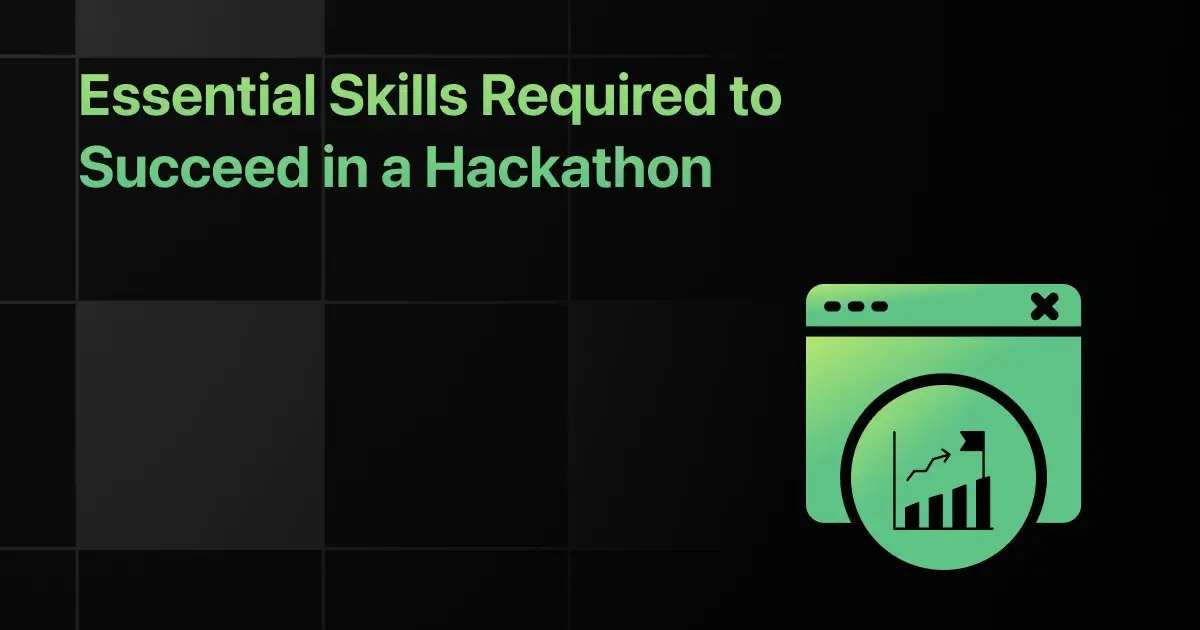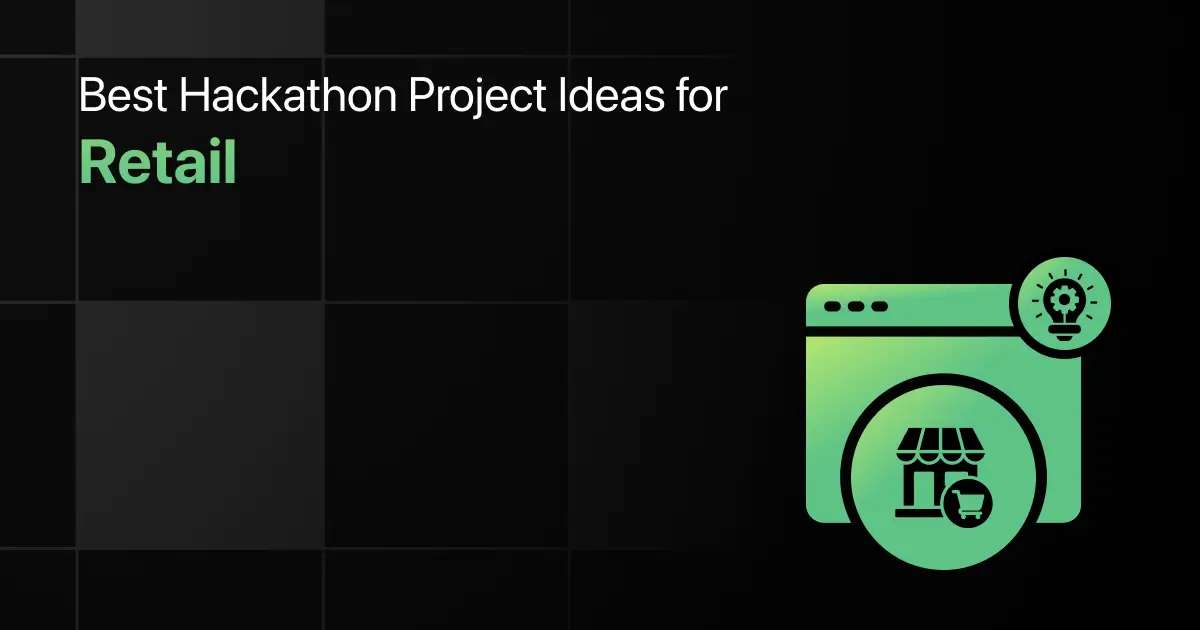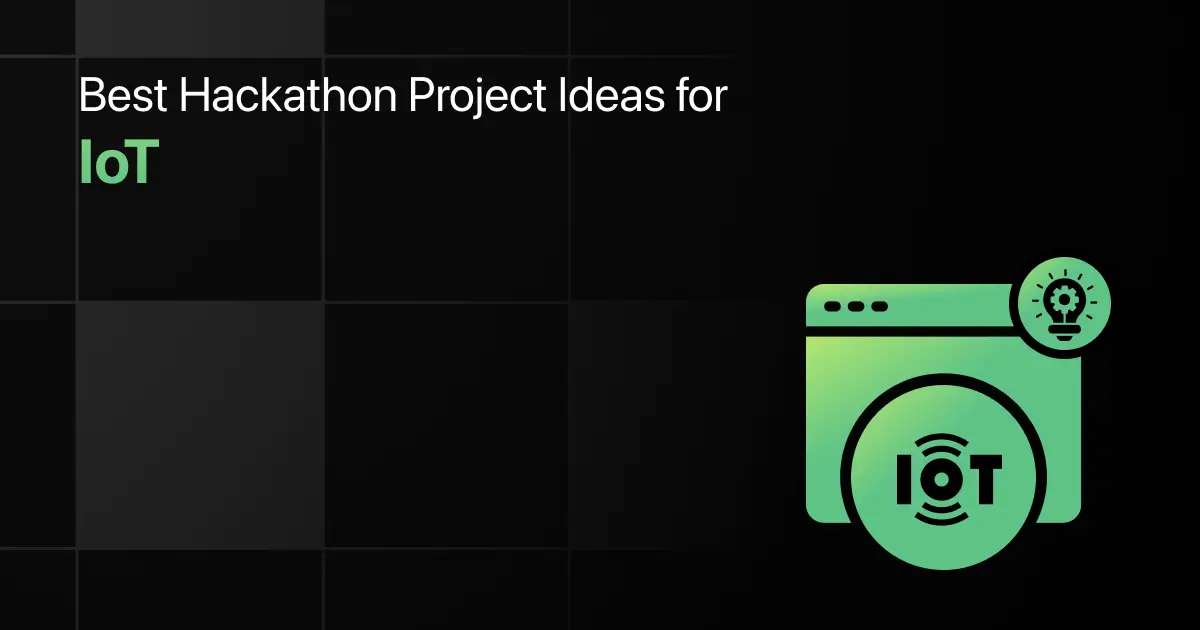Essential Skills Required to Succeed in a Hackathon – 2025

Ever looked at a hackathon and wondered what skills you actually need to do well? Many students feel unsure about where to start or what they should learn before joining one.
This guide breaks down the Essential Skills Required to Succeed in a Hackathon in a simple and clear way. You will understand what skills matter, what you need to learn, and how to prepare with confidence.
By the end, you will know exactly what a hackathon requires and how you can get ready even if you are a complete beginner.
Technical Skills required to succeed in a Hackathon
Every hackathon needs a basic level of technical understanding. These skills help you build ideas faster, solve problems easily, and work smoothly with your team.
1. Programming Fundamentals
A clear understanding of basic programming concepts helps you turn ideas into working features. You do not need to be an expert. You only need enough comfort to write simple logic and fix small issues on your own.
2. Debugging and Problem Solving
Being able to find and fix errors quickly is a huge advantage in a fast event like a hackathon. You learn to read error messages, test your code, and try new approaches. This helps you save time and avoid stress.
3. Understanding APIs and Integrations
Many hackathons involve using ready APIs to build features. Knowing how to read API docs and make simple requests helps you add login, payment, maps, or AI tools without starting from scratch. It makes your project more complete.
4. Basic UI or Frontend Development
Even a simple project needs a clean interface. Knowing how to design basic screens or web pages helps your idea look polished. Judges appreciate a project that feels clear and easy to use.
5. Version Control with Git
Git helps your team collaborate without losing work. You can track changes, merge ideas, and fix mistakes quickly. It keeps your project organised and makes teamwork much easier during the event.
Skills Required for Domain-Specific Hackathons
Different hackathons focus on different fields, so the skills you need can change based on the theme. Knowing what each domain expects helps you learn the right things and meet the basic hackathon requirements with ease.
1. AI and Machine Learning Hackathons
You need a basic understanding of data handling, model training, and evaluation. Knowing libraries like NumPy or Pandas helps you clean and analyse data. These events also require you to explain your logic clearly to show why your model works.
2. Web Development Hackathons
You should know how to build simple frontend and backend features. Skills like HTML, CSS, JavaScript, and basic APIs help you create a complete project. These hackathons often require clean design and smooth user flow.
3. App Development Hackathons
Students need to understand UI layouts, basic navigation, and simple databases. Knowing frameworks like Flutter or React Native helps you build fast. The main requirement is creating an app that works well within the time limit.
4. Fintech Hackathons
You need skills related to secure data handling, simple financial calculations, and API based payments. Understanding basic finance terms makes problem statements easier to follow. These hackathons require accuracy and trust in every feature you build.
5. Health Tech Hackathons
You need the ability to work with real world health data and create simple solutions for users or hospitals. Skills like data validation, dashboards, or symptom based logic are helpful. These events also require attention to safety and clarity.
6. Automation and Testing Hackathons
You need to understand scripts, tools, and simple workflows that automate tasks. Skills related to testing frameworks help you create reliable solutions. These hackathons focus on improving speed, accuracy, and reducing manual work.
7. Hardware or IoT Hackathons
You need basic knowledge of sensors, microcontrollers, and device connectivity. Skills like wiring, simple coding, and data reading help you build working prototypes. These hackathons require hands-on problem-solving and quick testing.
Soft Skills required to succeed in a Hackathon
Soft skills play a major role in shaping your hackathon experience. These skills help you work smoothly with your team and match the basic skills needed for a hackathon, especially when things get challenging.
1. Communication and Team Coordination
Good communication helps you share ideas, plan tasks, and stay organised as a team. It reduces confusion during fast problem-solving. This is one of the essential skills required for hackathon success because teamwork decides how far your project goes.
2. Time Management
Managing your time wisely helps you finish each part of the project without rushing. You learn to prioritise features and avoid unnecessary work. This keeps you focused on what is actually needed to meet hackathon requirements.
3. Creative Thinking
Hackathons need fresh ideas that stand out. Creative thinking helps you explore new approaches and build features that feel unique. It also makes your project more interesting for judges and users.
4. Adaptability and Quick Learning
Hackathons move fast, so you must learn new things quickly. Being adaptable helps you switch tools or ideas when needed. This mindset supports anyone who wonders what should I learn for hackathon events as a beginner.
5. Presentation and Storytelling
A strong presentation highlights your idea, features, and impact clearly and confidently. Storytelling helps judges understand your journey and problem-solving approach. This soft skill transforms a simple project into a complete and convincing solution.
Essential Tools Every Hackathon Participant Should Know
1. GitHub
Helps you store code, collaborate with teammates, and track changes without losing work. Most hackathons expect basic version control skills.
Explore: https://github.com/
2. Visual Studio Code
A simple and flexible code editor with useful extensions for web, app, and backend projects. Great for quick development during time based events.
Explore: https://code.visualstudio.com/
3. Figma
Ideal for designing clean UI screens and prototypes. It helps your team visualise the idea before building it, which saves time and confusion.
Explore: https://www.figma.com/
4. Postman
Let’s you test APIs quickly without writing extra code. This helps you understand responses and fix integration issues faster.
Explore: https://www.postman.com/
5. Google Colab
Useful for AI and data-based hackathons. You can run Python code, train models, and work with datasets directly in the browser.
Explore: https://colab.research.google.com/
6. Trello or Notion
Helps your team plan tasks, assign work, and stay organised during the hackathon. A clear structure keeps you focused on what is required.
Explore: https://trello.com/ | https://www.notion.so/
7. Canva
Helpful for designing slides, posters, and your final presentation. It makes it easy to explain your idea in a clean and visual format.
Explore: https://www.canva.com/
How to Build These Skills
Building the skills needed for a hackathon is easy when you follow a simple practice routine. You can learn the basics step by step and focus only on the requirements that matter for your project.
- Start with small projects: Create simple apps or websites to learn the essential skills required for hackathons. This helps you understand how ideas turn into working features.
- Join mini hackathons or online challenges: Short events help you learn what a hackathon requires without pressure. You also get used to quick problem-solving.
- Practice with free tools: Use GitHub, Figma, or Postman to get comfortable with the tools most teams depend on. Learning tools early saves time during the event.
- Try new tutorials every week: Pick a skill you need for a hackathon and learn it through short videos or beginner-friendly guides. This keeps your learning consistent.
- Build in small teams: Work with friends on tiny projects to improve communication and teamwork. These soft skills are often as important as your coding skills.
- Study past hackathon projects: Look at winning ideas to understand what skills are needed for a hackathon. You learn patterns that help you plan better solutions.
- Ask mentors or seniors for guidance: A little direction helps you avoid common mistakes. You also get clarity on what you should learn for hackathon preparation.
Final Words
Hackathons become much easier when you know the skills you need and how to build them step by step. With the right mix of technical skills, soft skills, and basic tools, you can join any event with confidence.
Start small, keep learning, and you will soon understand why these skills are essential to succeed in any hackathon.
FAQs
Skills you need for a hackathon include basic coding, teamwork, quick learning, problem-solving, and simple presentation abilities that explain your idea clearly.
Knowing multiple languages is not required for hackathons. One comfortable language is enough, as long as you can build and fix features confidently.
Teamwork is very important in hackathons because shared responsibilities, clear communication, and smooth coordination help your team finish the project on time.
Hackathons do not require strong coding skills. Basic understanding, willingness to learn, and problem-solving skills help you build meaningful features quickly.
Using AI tools in hackathons is usually allowed, and they help you build faster. Always check event rules to avoid any issues.
Preparing for a hackathon can take a few weeks of simple practice. Small projects and basic tools help you gain confidence quickly.
Hackathon skills help placements because companies value practical experience, teamwork, problem solving, and real projects that show how well you can build solutions.
Related Posts


Best Hackathon Project Ideas for Retail
What kind of project can stand out in a retail hackathon where customer experience, data, and business impact matter the …
Warning: Undefined variable $post_id in /var/www/wordpress/wp-content/themes/placementpreparation/template-parts/popup-zenlite.php on line 1050








